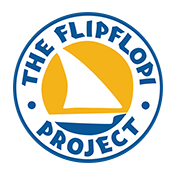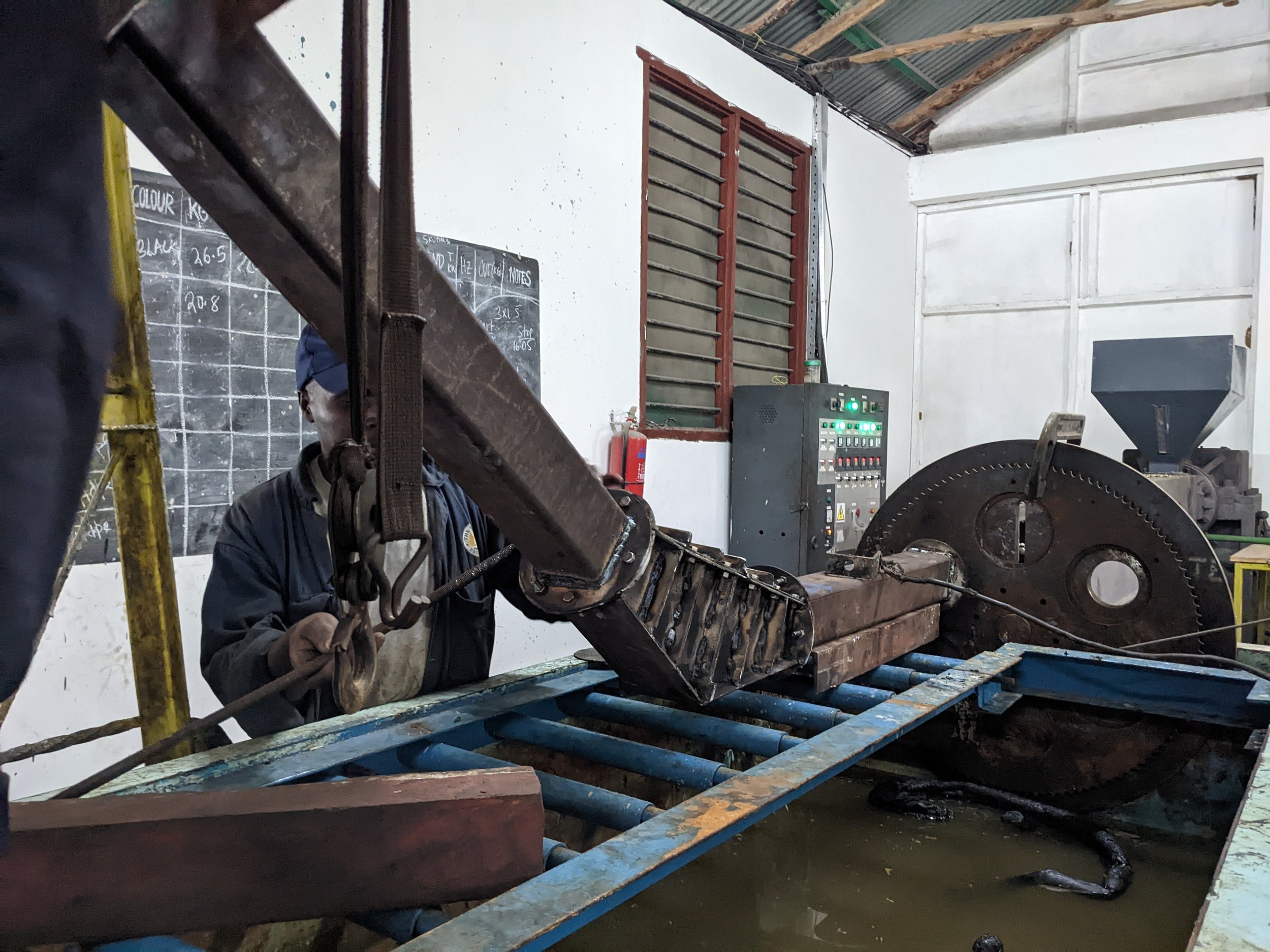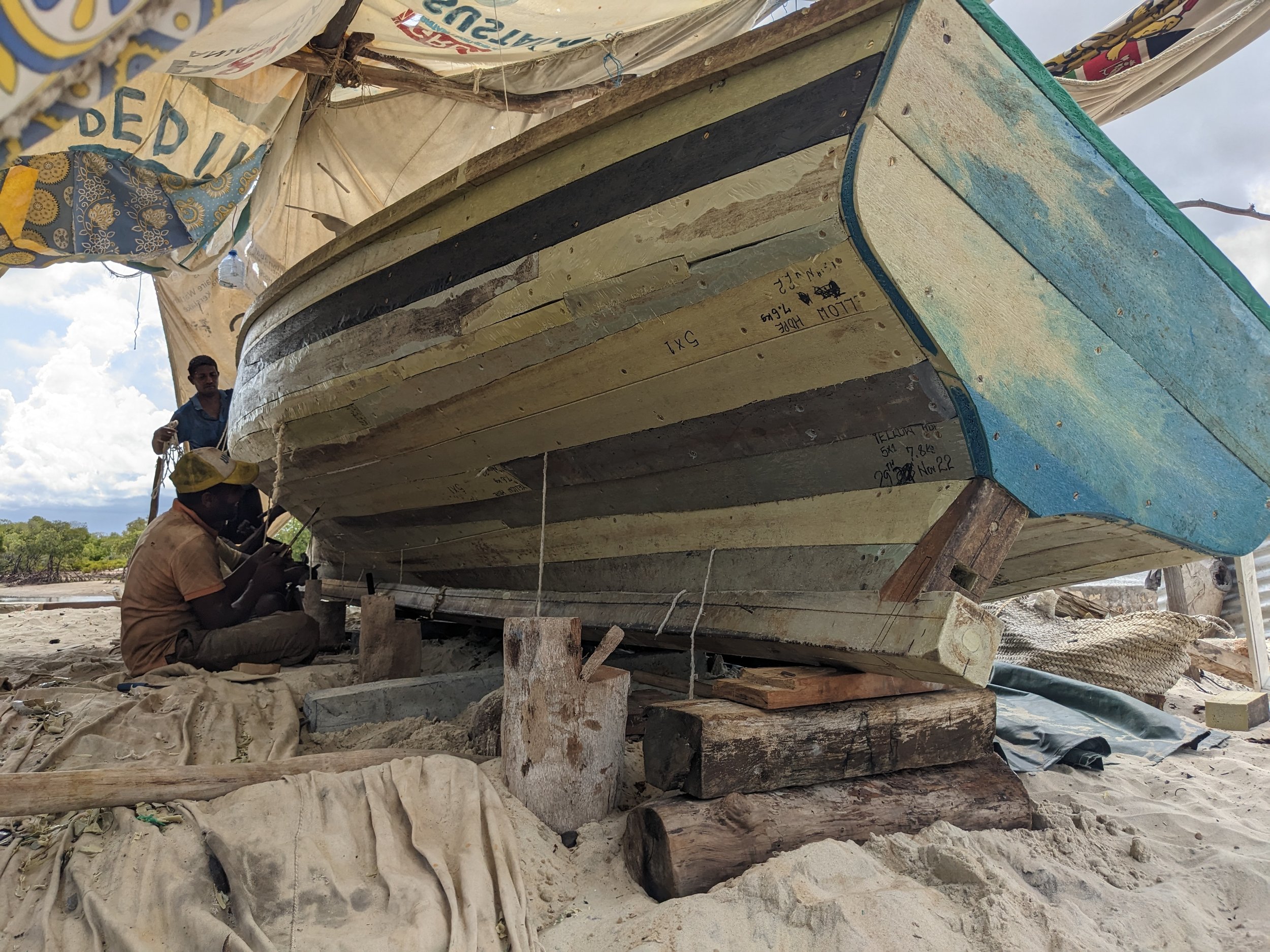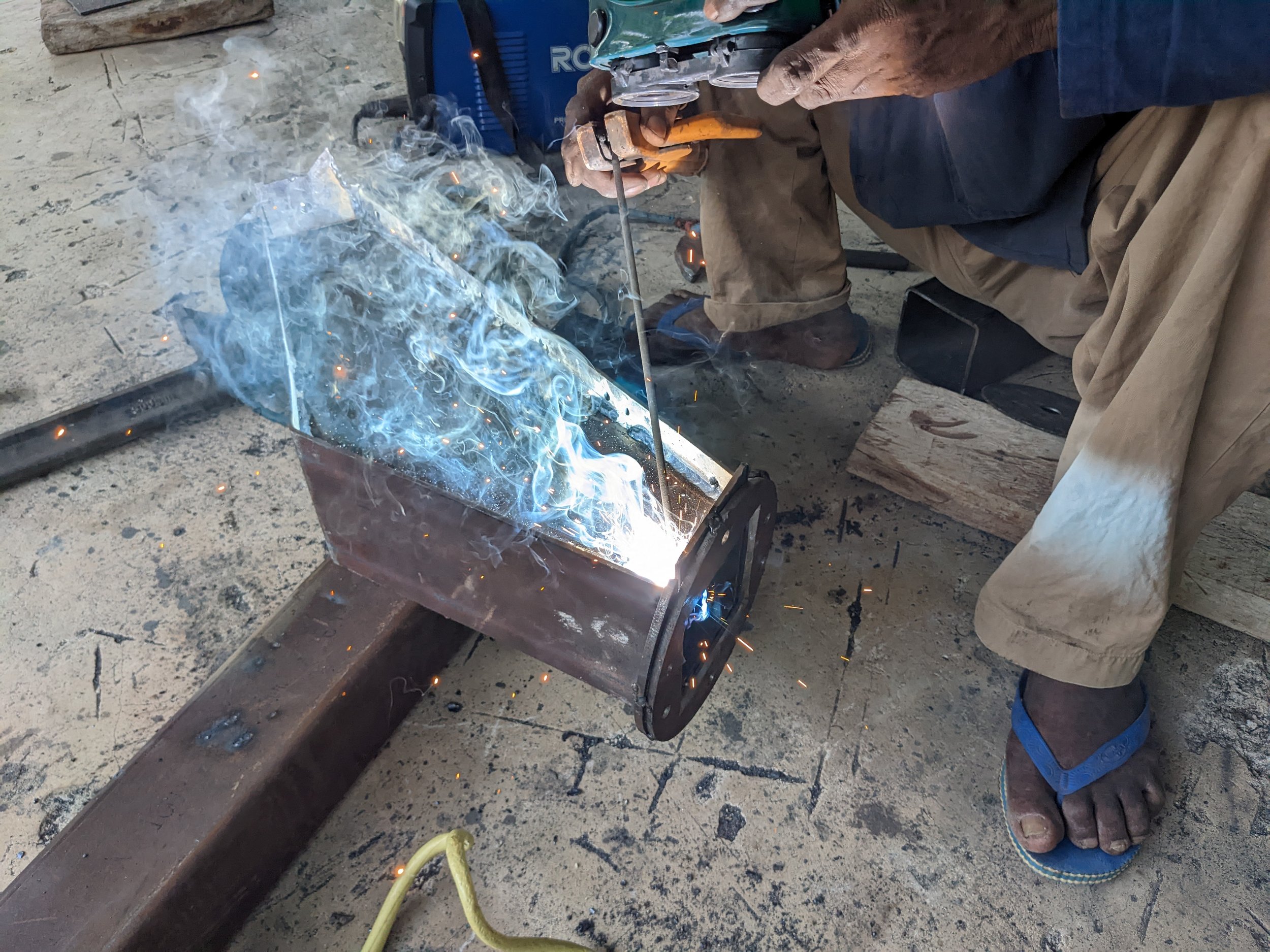Propelling Lamu to a cleaner future!
Welcome back to HQ Flipflopi and this month we’re excited to share with you that here on Lamu Island we have introduced zero-emission transport. Our new taxi boat, made from 100% recycled plastic waste, is now powered by an innovative propulsion solar engine.
Over the past few months we have been collaborating with engineering experts from Newcastle University, ePropulsion, from the UK, and Solagen, from Kenya, to design and test their latest development of a solar-electric propulsion system here on the island and it’s the newest addition to our ever growing fleet of seafaring vessels fabricated entirely from waste plastics collected on the Island.
Captain Abdullah has been ferrying passengers around the island.
Excitingly, this new eco-friendly system was found to match the speed of traditional petrol engines, while being substantially cheaper to run, and with zero-emissions.
“The pilot programme showed that electric propulsion is no longer just a climate solution for luxury cars, or for mass transit in high tech cities; it can contribute to solving environmental problems in lower resourced rural communities too. Since the solar panels can be fully recharged daily, on land and on the boat, this makes it a great option for short transit routes in coastal, lakeside and island communities across the world who use small open boats with outboard engines for fishing, cargo and passenger transport.”
Passengers playing their part to drive down emissions along Lamu’s coastline.
In the process of making the taxi dhow we transformed over 1.2 tons of locally collected HDPE plastic into durable recycled lumber, processed and shaped, using our innovative modular mould system. Our team of local craftsmen used the colourful, high-quality plastic lumber to hand-craft the boat using age-old boat-building techniques, combined with latest technology including plastic welding, to create our innovative taxi boat.
“Our mission is to help solve the plastic pollution crisis by supporting circular solutions in low-income maritime communities like ours. With our recycling and heritage boatbuilding centre, we are exploring how to create viable boat prototypes from plastic waste and preserving the indigenous craftsmanship of boatbuilding and furniture making for generations to come. If we can also adopt solar powered engines, we start to realise even greater opportunities for a greener and more sustainable future
”
Our dedicated team continues to prove that our manufacturing processes are moving ahead, at full steam, and that our community-centered circular solutions, including heritage boatbuilding, are helping solve the waste management and plastic pollution problem. As we continue to innovate and open source our solutions, we hope to kickstart #plasticrevolutions in other peri-urban shoreline communities like ours.
This collaborative Flipflopi success is a clear sign that traditional boats, made up of recycled material and powered by a solar-engine can pave the way towards zero-emission transportation solutions especially for boat-faring communities. As ever we are not resting on our achievements and are now looking into improving the support system, including maintenance and lease potential, to roll out adoption of this technology.
This effort has been possible thanks to the to the Sustainable Manufacturing and Environmental Pollution (SMEP) programme that has been supporting us, and believing in our vision, in this and many more endeavors. We are forever grateful!





